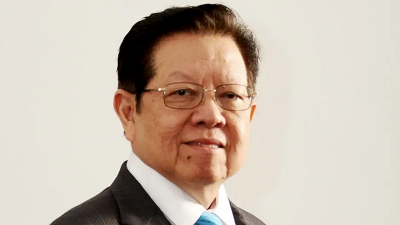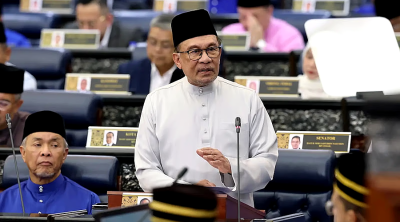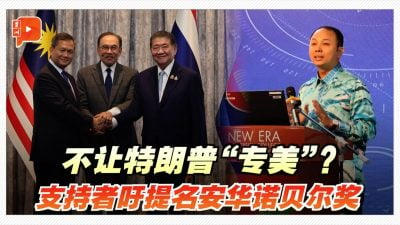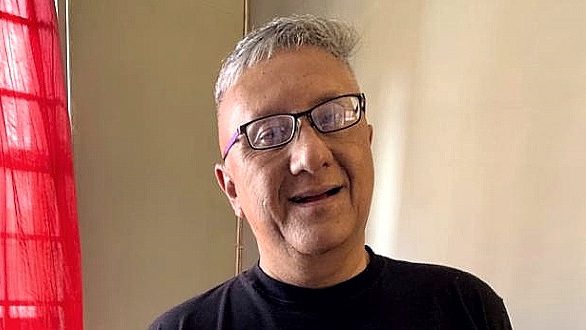
Since Anwar Ibrahim became Prime Minister on November 22 last year, he is like a knight on a crusade against corruption. That we know.
We have been hearing Anwar promising stern actions against anyone involved in corruption, regardless of whether he or she is from any particular party or is a relative of some important people.
Therefore, Anwar’s anti-corruption campaign is very much welcomed and supported by Malaysians.This we also know.
How can’t we not? As we, or the majority of us, are among the Malaysians supporting the Prime Minister’s onslaught against corruption.
I agree with veteran journalist R. Nadeswaran who is known for his anti-corruption stance when he wrote in a recent article for Malaysiakini that “in the past, systems and some people in the administration have been providing a fertile environment for the unscrupulous.”
Now, as he rightly pointed out, Malaysians are hoping for Anwar to “inverse the culture of corruption which has grown to humongous proportions – no thanks to some leaders who were part of it or others who condoned it.”
Hence, the rakyat’s support for the Prime Minister’s anti-graft crusade.
But, we have not seen any results yet despite Anwar’s hard talk.
Up till now he is still issuing warnings. In the words of Nadeswaran, the PM’s anti-corruption messages “are taken as a joke because they have become repetitive without any positive results.”
To be fair, I concur that fighting corruption, especially if committed by the “high and mighty,” is no easy task.
Considering the “fertile environment” provided by some people in previous administrations, as said by Nadeswaran, we know it takes time to bring in the much desired results.
Still something must be done fast. To say the MACC Act needs a comprehensive overhaul is an understatement, said Nadeswaran.
True. I also agree with him that “various attempts to initiate changes in the past were thwarted because of self interests.”
There is no denying that Anwar Ibrahim is serious in his war against corruption. But he needs to come up with something fast, to do justice to all his hard talk thus far.
The veteran journalist has suggested that the government take a leaf out of the United Kingdom’s book, citing the UK’s Unexplained Wealth Order or UWO which has effectively used to compel people to reveal the sources of their unexplained wealth.
It requires housing agents, boutiques, car firms, jewelers and dealers of valuables to report “suspicious” transactions.
The order is issued by British courts compelling anyone to reveal the sources of their unexplained wealth. Persons who fail to account or disclose are liable to have their assets seized.
Nadeswaran is asking why not a similar legislation in Malaysia. Indeed, why not?
But I need to say we already have something “similar” as far as to account for unexplained wealth is concerned. Well, sort of.
Back in 2017 the MACC revealed that social media had become its source of information in tracking down “ill gotten wealth.” Hence, civil servants and their families who show off their expensive holidays abroad and luxury items on Facebook and Instagram risk courting the MACC’s attention.
I found the MACC’s revelation so interesting that I wrote about it for The Edge Malaysia weekly back in January 2017.
According to Datuk Azam Baki, who was then MACC deputy chief commissioner for operations, while it was not a crime for civil servants and their families to own luxury handbags and watches, “having one too many Hermes, Chanel or Louis Vuitton bags will raise eyebrows and suspicion as to the source of their wealth.”
He went on to say, “If civil servants or their family members are having more than a dozen and flaunt them, then we would like to know where they got their money them.”
Based on what the MACC officer had said, I wrote in my article saying it was to be expected that the corruption buster would look beyond or rather above civil servants and their families.
It was expected, I wrote, that the MACC would take a look at ministers and members of parliament as well.
I said this because back then ministers, deputy ministers, MPs and their families were very fond of displaying their wealth via social media platforms, with Instagram and Facebook being their favorites (there was no TikTok back in those days).
For example, postings of luxurious lifestyle, luxurious vacations overseas especially in Europe, fleet of very expensive cars, very expensive watches and lots of other things. All luxurious and expensive. All there for all to see just a click away.
I wasn’t accusing anyone of anything but merely agreeing with Azam when he said flaunting wealth could attract the MACC’s attention and raise questions among the public.
Six years on, I do not know if any civil servants have been called in to explain their wealth they have proudly displayed on social media. So too ministers and deputy ministers. But I do know some of the ministers and politicians who have flaunted their luxuries either by themselves or their families have gone on to higher acclaims following the infamous Sheraton Move in 2020.
I wonder if Azam now ought to take a relook at his strategy of using social media postings to ask important questions.
After all, he is still in MACC, in fact at a higher position than the one he was at when he first spoke about the social media strategy.
He is now the chief commissioner. The number one in MACC. And is also a Tan Sri.
And perhaps the Prime Minister ought to remind the MACC boss of the said strategy? But I don’t know if wealth is still being flaunted in social media by “people of interests.” Perhaps it is already an opportunity lost for the MACC?
As for Anwar, there is no denying that he is serious in his war against corruption. But he needs to come up with something fast, to do justice to all his hard talk thus far.
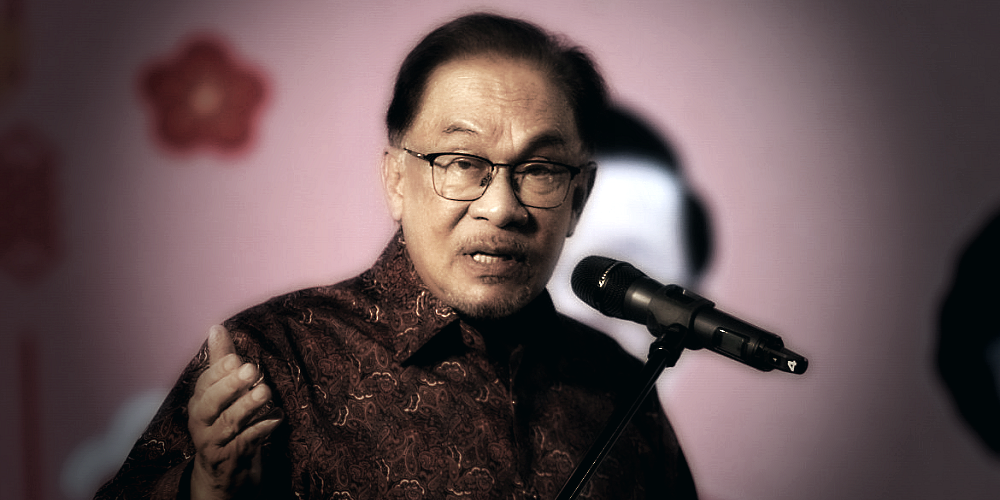
(Mohsin Abdullah is a veteran journalist and now a freelancer who writes about this, that and everything else.)
ADVERTISEMENT
ADVERTISEMENT







